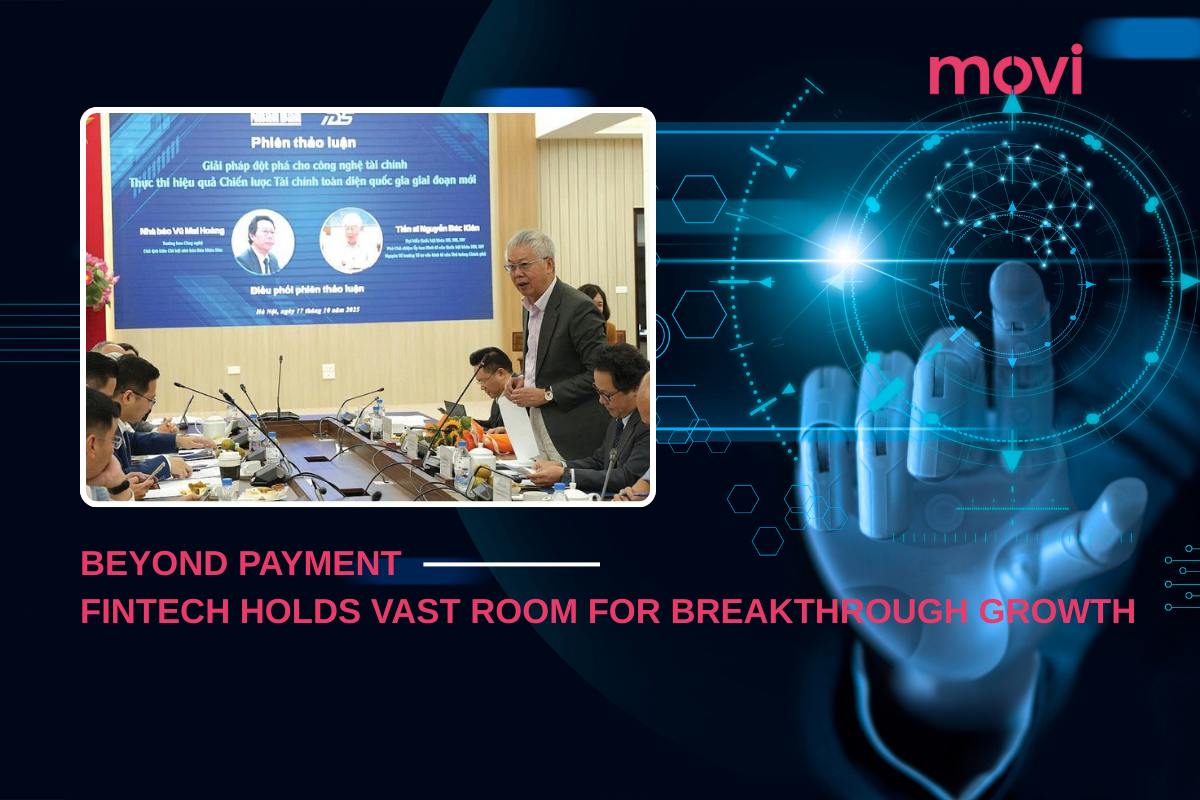
Loading
INCLUSIVE FINANCE IN VIETNAM BUILDING A HARMONIZED DIGITAL ECOSYSTEM
(TBTCO) – According to experts from RMIT University, financial technology (fintech) is paving the way toward financial inclusion — ensuring that no one is left behind in the country’s digital transformation journey. To make this goal a reality, Vietnam needs a balanced ecosystem where technology, education, and policy work in harmony.
Vietnam Achieves Significant Progress in Expanding Financial Inclusion
Financial inclusion has become a foundational goal in Vietnam’s long-term development strategy. Under the *National Financial Inclusion Strategy to 2025, with a vision toward 2030*, every citizen and business should be able to access key financial services — including money transfers, payments, credit, savings, and insurance — in a safe, convenient, and affordable manner. The priority focus remains on low-income individuals, vulnerable groups, and micro, small, and medium-sized enterprises (MSMEs).

Over the past decade, Vietnam has made remarkable strides in expanding access to finance. According to the State Bank of Vietnam’s Digital Transformation Report 2025, only about 31% of adults had a payment account in 2015, but by 2024 this figure had surged to over 87%. Official data also show that since 2020, the total value of cashless payment transactions has increased by more than 34%, with many public-sector areas now operating entirely without cash.
Dr. Pham Nguyen Anh Huy, Senior Lecturer in Finance at RMIT University, highlighted that breakthroughs in fintech have greatly improved financial accessibility in Vietnam. The success of mobile banking, QR code payments, and e-wallets marks a major leap forward.
With over 30 million active accounts as of March 2025, e-wallets such as MoMo and ZaloPay have provided convenient new ways for people to transact. Meanwhile, mobile money — allowing users to make small payments directly from mobile phone accounts — has reached 9.6 million users by the end of 2024, 72% of whom live in rural areas.
“These innovations play a crucial role in bringing people in remote and rural regions into the digital economy,” Dr. Huy noted.
Raising Public Awareness and Enhancing Regulatory Frameworks
According to the Fintech–Crypto Research Group at RMIT, emerging technologies — particularly artificial intelligence (AI) and blockchain — will be key drivers of financial inclusion in Vietnam in the decades ahead.
“Technology will continue to shape the future of financial access, especially with the rapid adoption of AI and blockchain. These are among the new growth areas identified by the Government,” Dr. Huy stated.
With the Government issuing a National Blockchain Strategy and developing a regulatory framework for digital assets and cryptocurrencies, RMIT experts believe that the role of decentralized finance (DeFi) will expand, unlocking new financial services such as staking, lending, and liquidity provision.
Dr. Nguyen Thanh Phong, Lecturer in Blockchain-Based Business at RMIT University, observed that blockchain and DeFi models — when properly managed and regulated — could substantially enhance financial inclusion in Vietnam. By leveraging decentralized databases and algorithms, these models offer alternative financial services and products that operate outside traditional banking systems.
He also forecast that AI will continue to play a pivotal role in strengthening financial innovation - from mobile applications and digital payment platforms to DeFi systems. The advancement of such technologies will allow more people to access financial services, thereby improving quality of life in Vietnam over the coming decades.
However, rapid technological growth also brings risks — particularly in cybersecurity. “As digital exposure increases, individuals face greater vulnerability to cyberattacks that can compromise their accounts and funds. Raising public awareness of cybersecurity threats and online financial risks is essential to ensure the sustainable growth of both fintech and Vietnam’s financial inclusion efforts,” Dr. Phong emphasized.
Dr. Huy also underscored the importance of enhancing regulatory mechanisms, welcoming recent government frameworks designed to pilot new fintech products. He praised the regulatory sandbox initiative launched under Decree No. 94/2025/NĐ-CP, effective from July 1, 2025, which allows controlled testing of fintech services such as peer-to-peer lending (P2P), credit scoring, and open API–based data sharing.
He recommended that the Government accelerate the selection process for participating companies and broaden the range of approved products — particularly as the Digital Technology Industry Law takes effect and new resolutions on international financial centers and digital assets are introduced.
Source: thoibaotaichinhvietnam.vn














